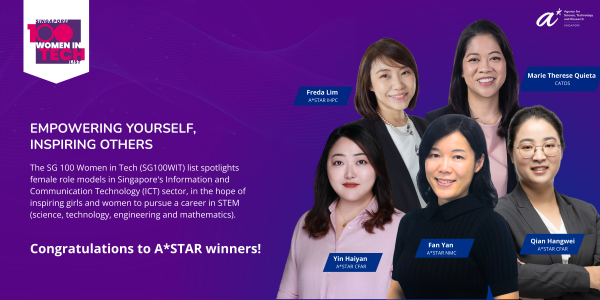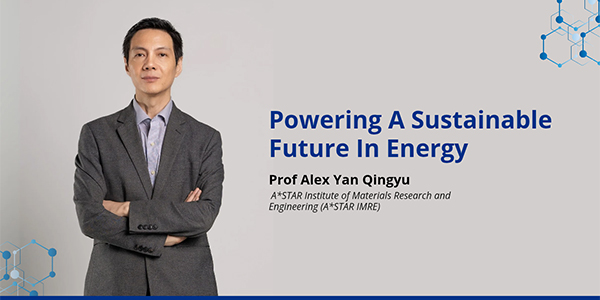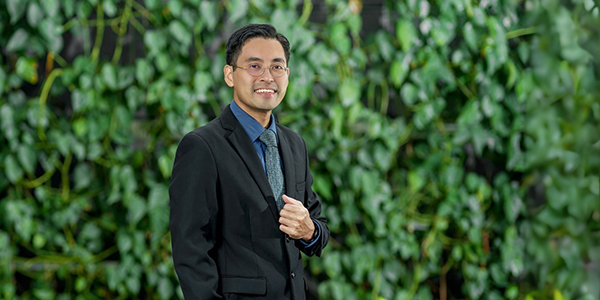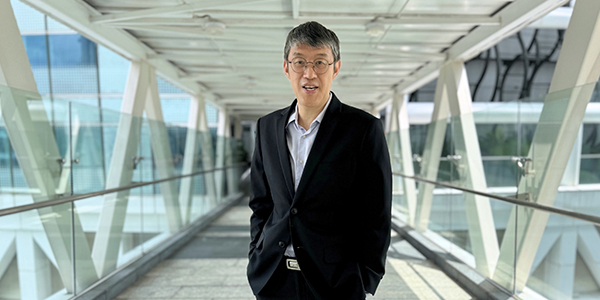FACES OF A*STAR
A*STAR Automation Centre of Excellence: Driving Digital Skills, Innovation, and Collaboration
Launched in 2023, the A*STAR Automation Centre of Excellence (COE) has a bold mission to help A*STAR employees acquire basic automation skills while fostering a citizen development and self-help mindset.
The Automation COE is more than just a platform for leveraging digital tools to drive productivity gains. It cultivates a dynamic community that encourages collaboration, cross-learning, and impactful contributions to automation initiatives across A*STAR. The COE also ignites a passion for professional growth and development among our staff.
Discover how our members in the Automation COE are pushing the boundaries in automation.
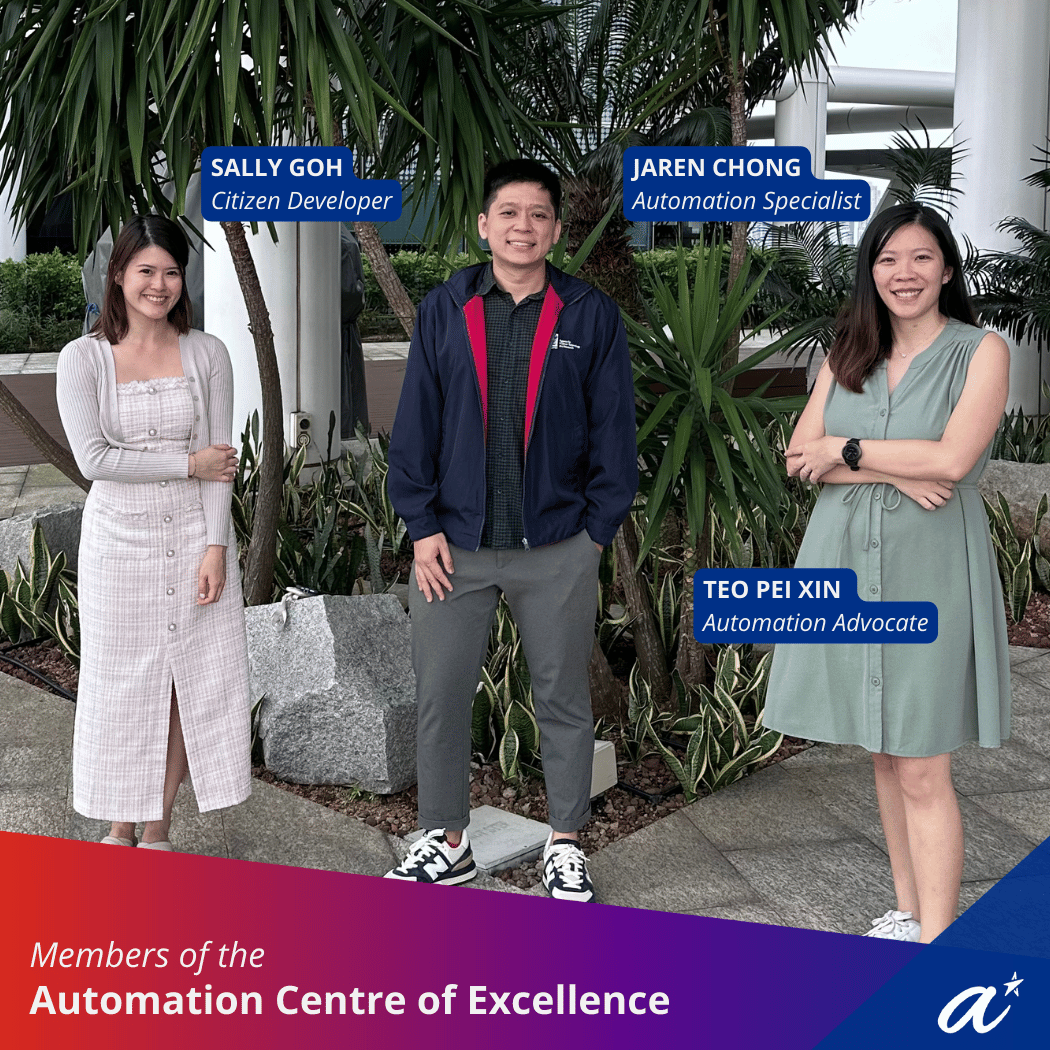
Q: How did you first get exposed to automation?
Jaren : My first brush with automation was on Telegram, where I sent my first scheduled message to a group chat and played text-based games. It was a simple trivia game called Quizarium, where a bot would post a question, and players would respond with the answers in the chat. While it was only a game, it gave me my first taste of the endless possibilities we could achieve with automation.
Sally : The most memorable experience was the launch of the self-checkout machines deployed in various fast-food chains. I was in awe of this new process, as it was so convenient to order my food without repeating it out loud to a cashier. This eased my stress as I often felt pressured to repeat my orders to a cashier and make my decisions quickly. I then realised that automation offers vast possibilities, and this realisation shaped my experiences with automated systems.
Pei Xin : Once, I was at a gathering with some friends who happened to be working in the tech industry. The conversation was about Robotic Process Automation (RPA), and I became curious about how automation could help my work. I chanced upon an opportunity to work with A*STAR's Digital Transformation, Innovation, and Data Division (DTID), which kickstarted our collaboration to streamline my work processes.
Q: Can you share some of the exciting automation projects you have been involved in?
Jaren : One notable initiative was with the Finance Accounts Payable team. Our team developed a solution to track payment batches through the review and authorisation process. Previously, the process required approvals via emails from multiple parties, which proved laborious and challenging to monitor. The resulting solution streamlines the routing of approval emails, tracks responses, and sends reminders to parties who don't respond within the specified service level agreements.
Pei Xin : My department handles utility bills and works closely with Finance on the payment processes. The idea of automation came about when we had to manually track utility consumption, which was laborious. Our journey has yielded significant results, with the automation now operating seamlessly and providing the necessary data for dashboarding needs.
Q: What benefits have you observed from implementing automation in your work?
Pei Xin : It was something new for my learning. It allows me to explore new topics and enhance my knowledge while working with DTID. I got the chance to understand the mechanism behind automation and dive deeper into various user requirements to pull everything together to work.
Sally : I discovered the art of implementing Microsoft Power Automate for one of our recent Leadership and Organisation Development (L&OD) in-house programmes' registration process. Automation has enabled me to learn a new skill and enhance work efficiency. It helps to reduce the manual efforts required for repetitive tasks. It freed up some of my time to focus on my other tasks, and I love that it automatically responds to staff who signed up without my intervention.
Q: What impact do you anticipate automation will have on future job roles and skill requirements?
Jaren : As routine tasks become automated, our roles will evolve with a greater emphasis on creative and strategic initiatives. The demand for technical skills like programming and data analysis will rise alongside complementary soft skills such as problem-solving and critical thinking. With the integration of AI with automation, we can further enhance our productivity and make more sound decisions. While automation can be beneficial, it is only a panacea for some workplace challenges. The key lies in balancing integrating automation into workflows while ensuring human oversight to mitigate financial or reputational risks.
Pei Xin : I hope to share the mindset of using automation tools to help streamline work processes and improve efficiency. With the integration of AI, we can further enhance our capabilities to analyse data, predict outcomes, and make informed decisions. I am looking for opportunities to deepen this set of skills in the future.
Sally : It is a fast-moving world, with rapid changes in technology and skillset requirements. Automation is likely to transform the nature of work and requires people to continuously upskill to stay relevant in the future job market. To stay competitive, individuals must be proactive in learning new digital skills and adapting to changes in their industry. This may involve taking courses, attending workshops, or seeking mentorship to develop new competencies. Ultimately, the ability to continuously learn and adapt will be crucial for success in the rapidly evolving job market.
Members Introductions
Jaren Chong
A*STAR's Digital Transformation, Innovation and Data Division
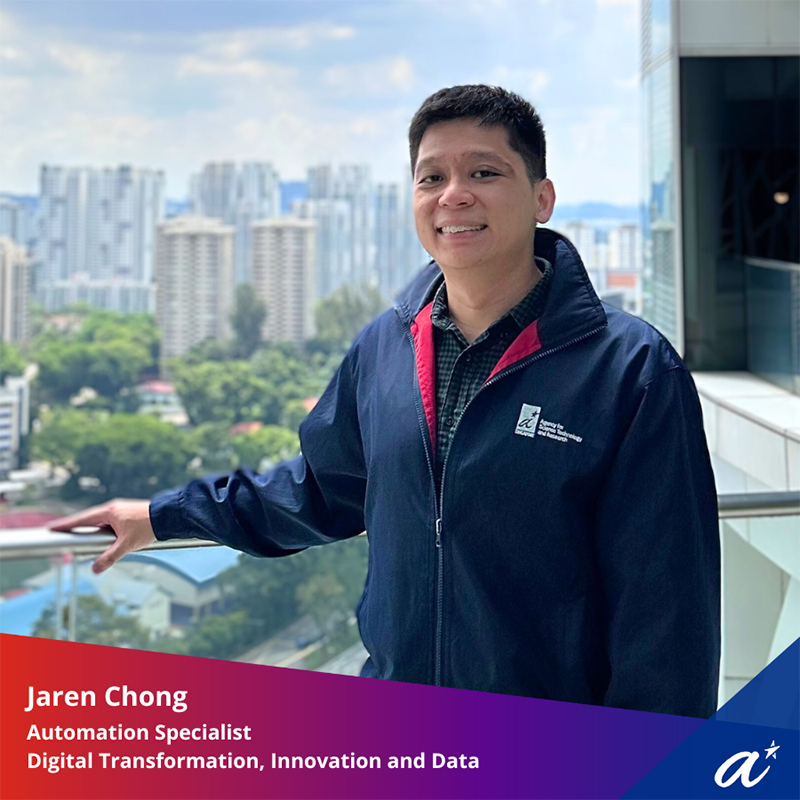
With a keen focus on enhancing operational efficiency, Jaren specialises in guiding A*STAR staff through the evaluation of their existing business processes. His expertise lies in leveraging Power Platform to develop tailored solutions that streamline operations and minimise manual intervention.
As a core member of the COE, Jaren actively collaborates with his peers to share insights and strategies for optimising low-code automation solutions. His role not only involves troubleshooting technical challenges but also ensuring these solutions perform at their peak, thereby driving sustainable efficiency gains across the organisation.
Sally Goh
A*STAR's Leadership and Organisation Development Division
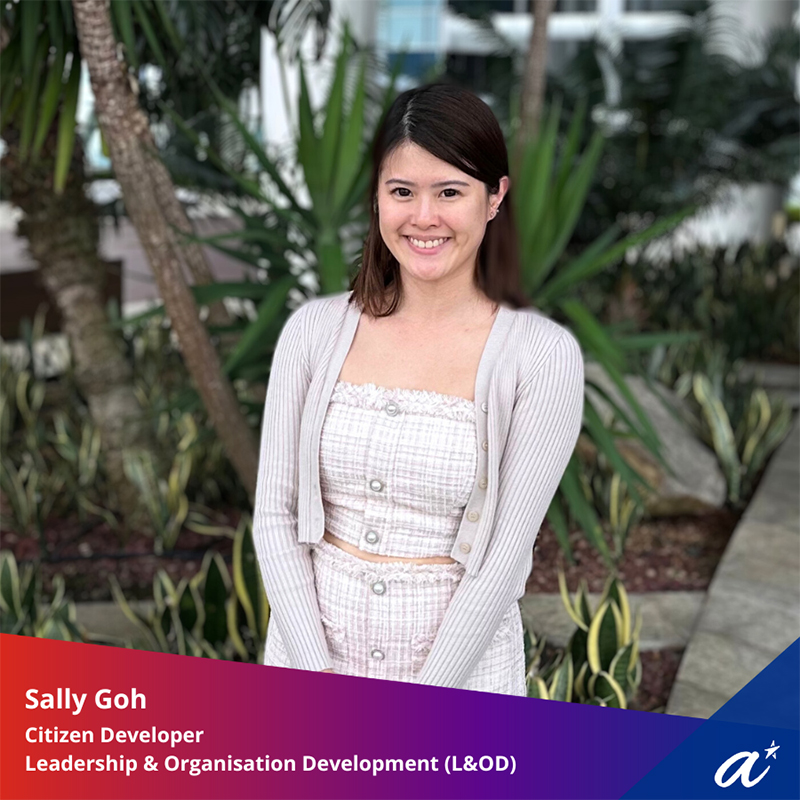
Sally's role entails overseeing the end-to-end leadership development of A*STAR managers and leaders, which involves managing comprehensive programmes that cater to their professional growth and ensuring that A*STAR managers and leaders are equipped with the skills and capabilities necessary to drive innovation, foster collaboration, and achieve organisational goals effectively.
As a Citizen Developer, Sally proactively explored the use of automation tools to improve the efficiency of her work by reducing manual efforts required to track the registration process for her in-house leadership programmes.
Teo Pei Xin
A*STAR's Space, Infrastructure & Administration Division
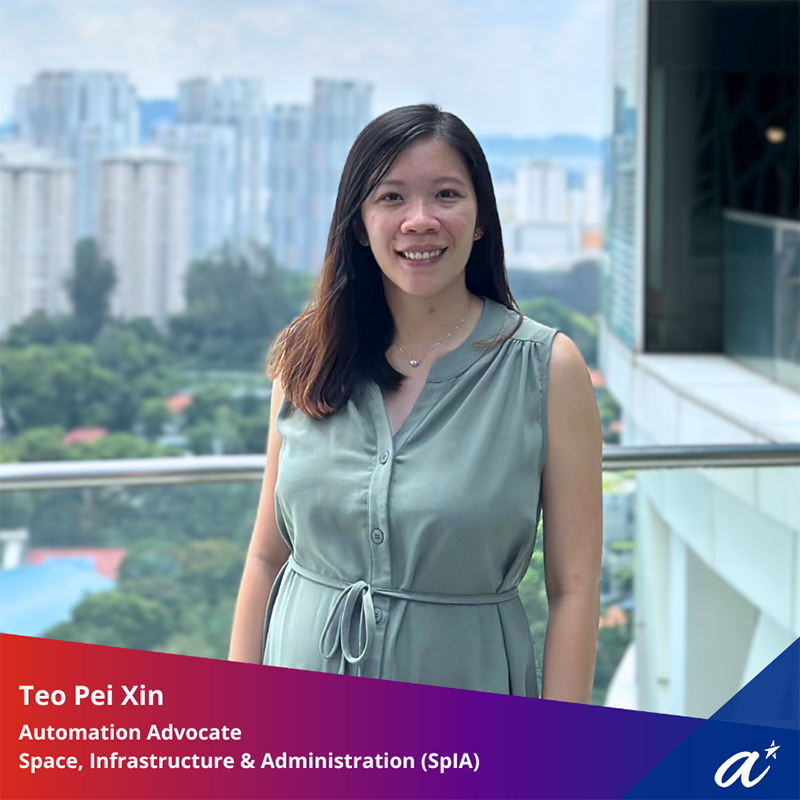
Pei Xin's role entails managing the financial budgets of A*STAR's space footprint by overseeing rental, utilities, and facilities management costs. As an Automation Advocate, Pei Xin explored using automation tools to enhance work processes for budget utilisation by tracking historical data for future cost projections. This benefits the entire team by promoting data clarity with a single source of truth from the developed automation tool.
Was this article helpful?
A*STAR celebrates International Women's Day

From groundbreaking discoveries to cutting-edge research, our researchers are empowering the next generation of female science, technology, engineering and mathematics (STEM) leaders.
Get inspired by our #WomeninSTEM

